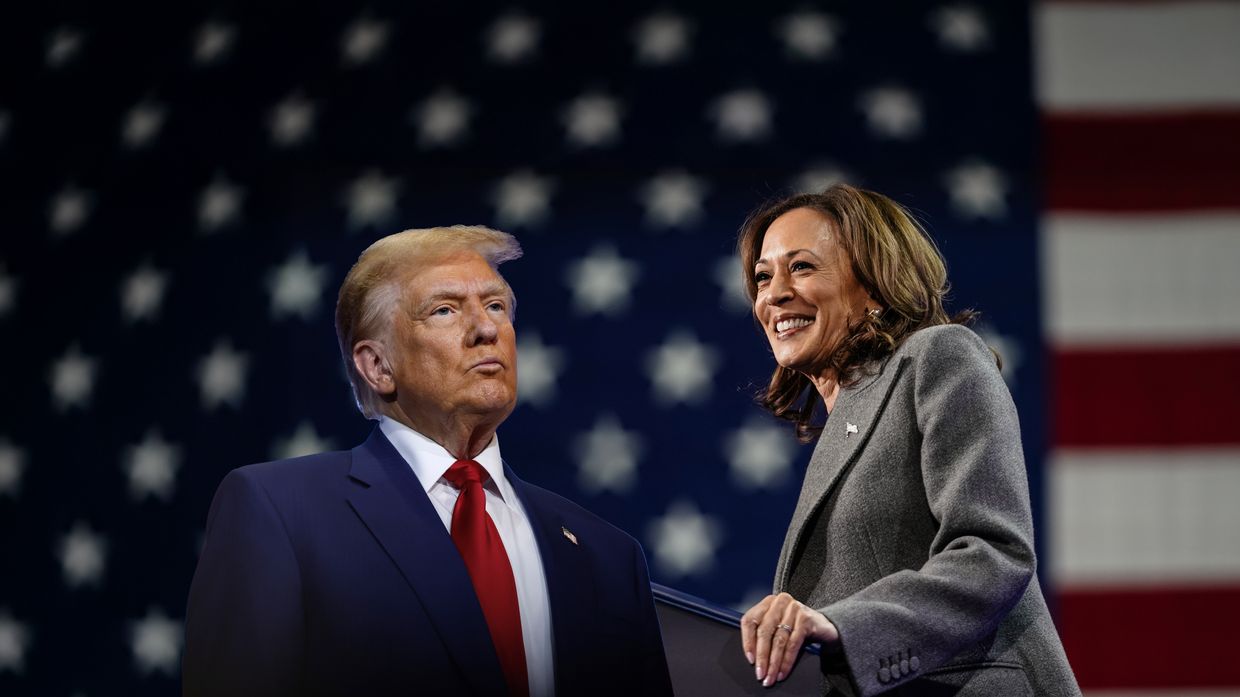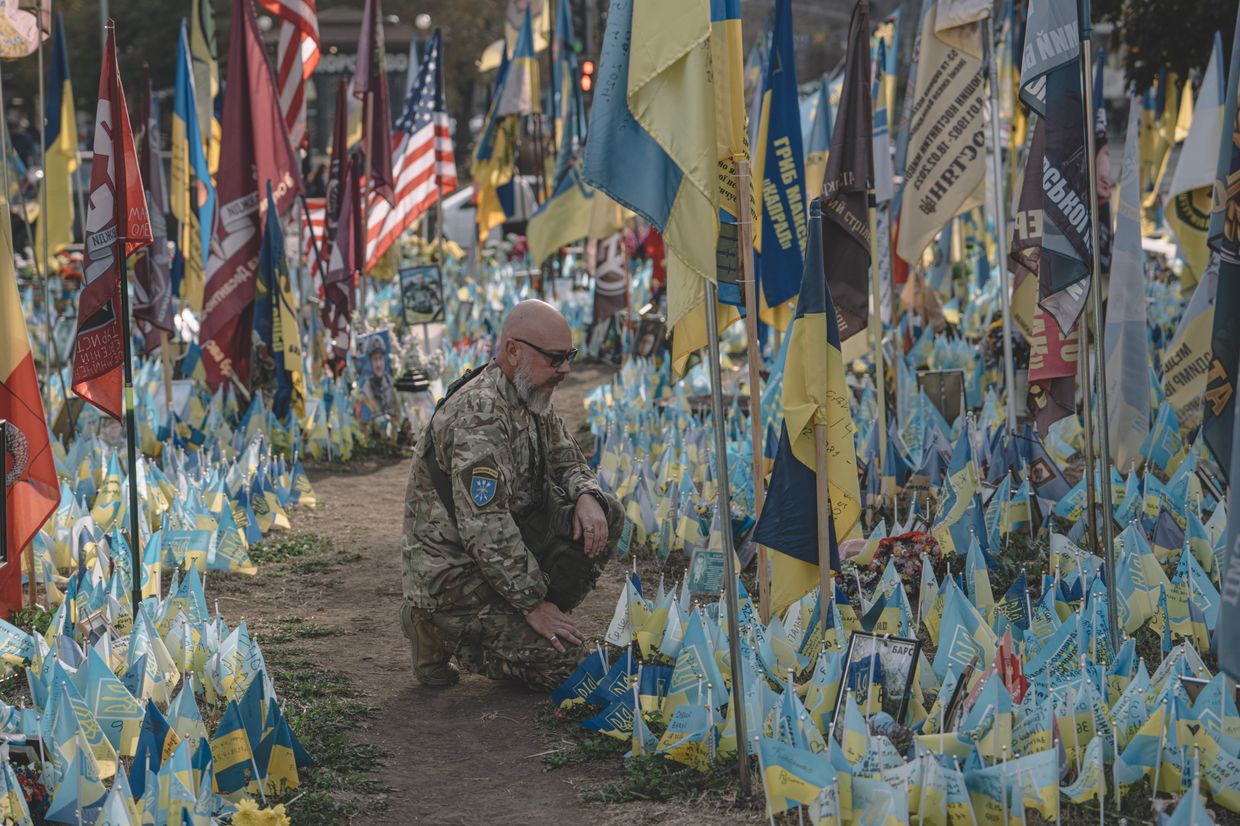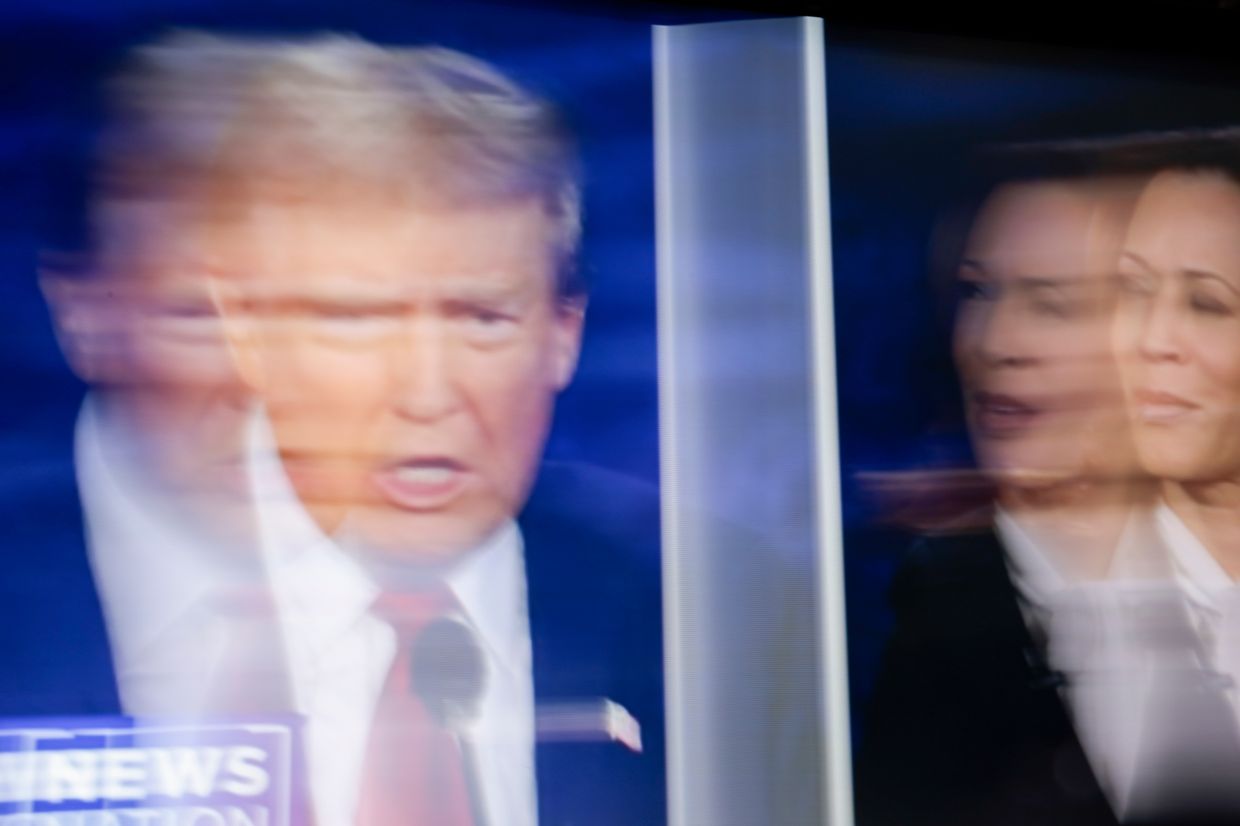Zelensky used talk with Trump about nuclear weapons as leverage before crucial US election, analysts say
Zelensky’s statement on nuclear weapons may be an effort to pressure the West to provide strong security guarantees.

Ukrainian President Volodymyr Zelensky speaks during a news conference with U.S. President Joe Biden in the Indian Treaty Room of the Eisenhower Executive Office Building in Washington, DC, US on Dec. 12, 2023. (Chip Somodevilla/Getty Images)
With Ukraine's future hanging in the balance ahead of the Nov. 5 U.S. presidential election, Ukraine’s president turned up the heat, invoking the specter of nuclear weapons to nudge whoever lands in the Oval Office toward offering more conventional weaponry and robust security guarantees to Kyiv.
Volodymyr Zelensky said on Oct. 17 that he had told ex-President Donald Trump, the Republican candidate in the election facing off against Vice President Kamala Harris on the Democratic ticket, that Ukraine would either join NATO or develop nuclear weapons. Later the same day, he walked back that statement, saying that Ukraine was not planning to create a nuclear bomb as a deterrent against Russia’s full-scale invasion now in its third year.
"Zelensky mentioned nuclear weapons in order to call for further commitment by NATO countries, especially from the United States, for further support for Ukraine," Kazuto Suzuki, director of the Institute of Geoeconomics at the International House of Japan, told the Kyiv Independent.
"He might be thinking that Ukrainian resolve to possess nuclear weapons might give an additional reason for the new U.S. president, whoever is elected."
Zelensky’s talk about an atomic bomb comes just as fears mount that U.S. support for Ukraine could take a nosedive after the election amid Russia’s accelerating offensive in the Donbas, especially with the prospect of Trump, who has criticized aid to Ukraine, back in the White House.
Pressure to boost weaponry supplies and open NATO’s door?
Zelensky's comment on nuclear weapons was a reference to his Sept. 27 meeting with presidential candidate Trump during a visit to the U.S.
Trump has praised Russian dictator Vladimir Putin and questioned further U.S. assistance to Ukraine. He has also promised to broker a peace deal to end the war in Ukraine, and there is speculation that he could pressure Kyiv to cede territory to Russia or agree to Putin's terms.
"I told Donald Trump: either Ukraine will have nuclear weapons, which will serve as protection, or it must be part of some kind of alliance. Apart from NATO, we do not know of such an effective alliance," Zelensky said in Brussels, where he presented his victory plan to EU leaders on Oct. 17.
"I believe Trump heard me and said that it was a fair argument,” Zelensky added.
Later the same day, Zelensky walked back his statement at a press conference with NATO Secretary General Mark Rutte.
"We never spoke about… preparing to create nuclear weapons or something like this," he said, adding that his comment referred to Ukraine giving up its nuclear arsenal in 1996 in exchange for the protection by three nuclear states, the U.S., the U.K., and Russia. The agreement is known as the Budapest Memorandum.

Stefan Wolff, professor of international security at the University of Birmingham, said that "Trump might be more susceptible to the idea (of Ukraine having nuclear weapons)” but “it's a non-starter whoever wins” in the U.S. election.
“I could certainly see (Trump) using the threat of allowing Ukraine to have nuclear weapons as part of whatever he thinks he will negotiate with Putin,” he added.
Some commentators argue that Zelensky's statement on nuclear weapons was just bluff and a tool of pressure.
"Clearly he was trying to get leverage with the U.S. and other NATO members for a stronger commitment to NATO membership for Ukraine, but regarding the U.S. election specifically he seems to be trying to position himself to have a decent relationship with whomever wins," Lynn Rusten, vice president at the U.S.-based Nuclear Threat Initiative’s Global Nuclear Policy Program, told the Kyiv Independent.
Claus Mathiesen, a lecturer at Denmark's Defense Academy and a former military attaché in Ukraine, said that several countries are considering acquiring nuclear weapons amid uncertainty over post-election U.S. policy and the possibility of the U.S. reducing its commitment to NATO if Trump is elected.
Meanwhile, Jenny Mathers, a lecturer in international politics at the U.K.'s Aberystwyth University, believes that “Zelensky's original statement may have been designed to shock Ukraine's Western supporters into realizing that Kyiv does need a more robust form of security guarantee than the ‘as long as it takes’ that the West has been offering so far.”
She said that Zelensky’s statement could “jolt (the West) into changing their perception to regard offering NATO membership to Ukraine sooner rather than later as the less risky of the possible futures facing the world."

According to Wolff, "the debate indicates a certain level of desperation and resignation in Kyiv caused by the lack of Western follow-through on the tough, but often empty rhetoric frequently on display.”
An analyst and diplomat working for the U.S. government told the Kyiv Independent that Zelensky's statement had already had an impact on Ukraine's Western partners. He was speaking on condition of anonymity because he was not authorized to speak to the press.
Although Western allies don't see a Ukrainian nuclear program as realistic, the diplomat added, they understand Zelensky's message that the situation is desperate and that Ukraine needs security guarantees.
"Zelensky's message is clear," he said. "The West actually gets this. Before September, an invitation to NATO had not been considered. But now the topic of inviting Ukraine to NATO is back on the table."












